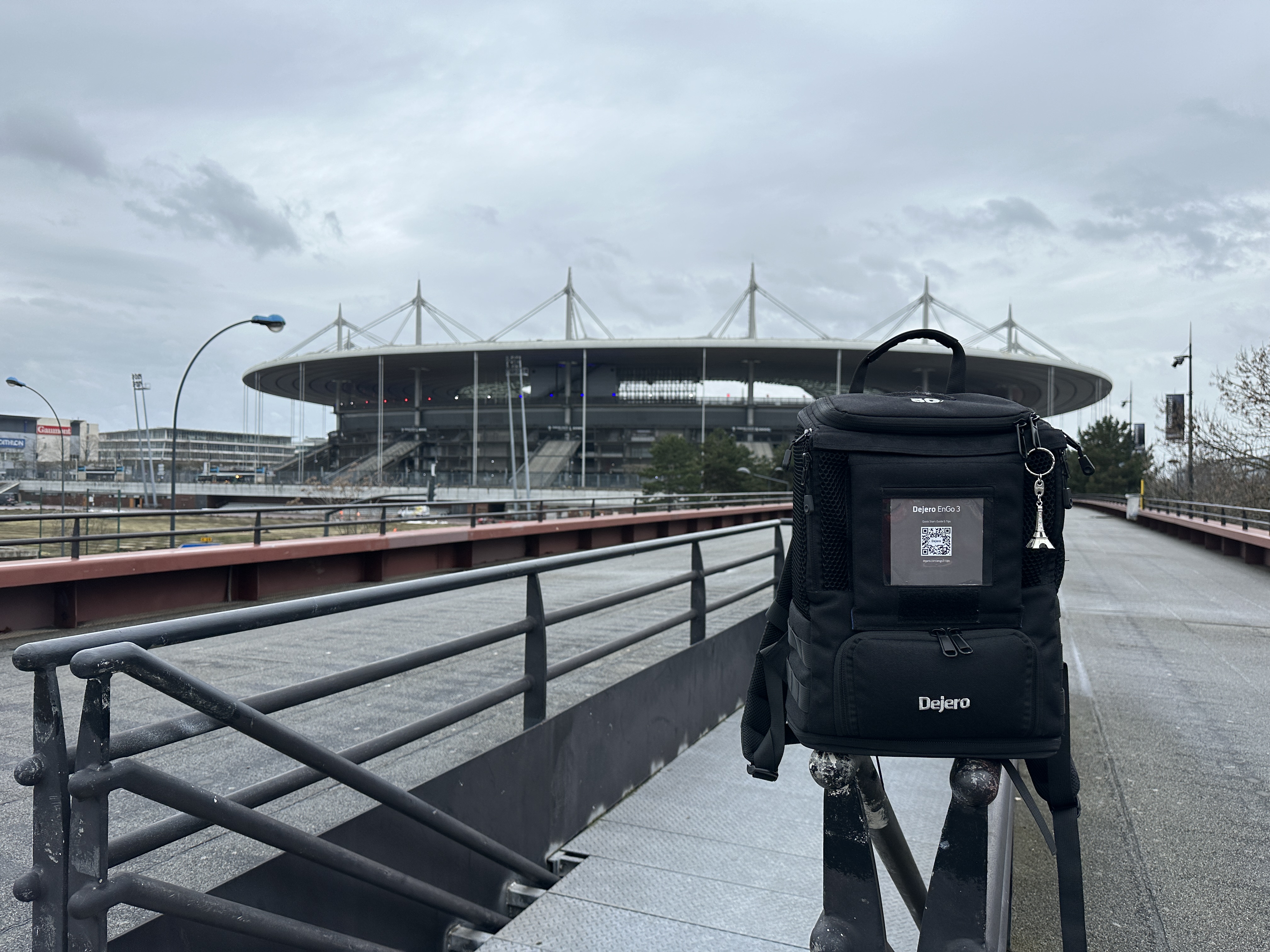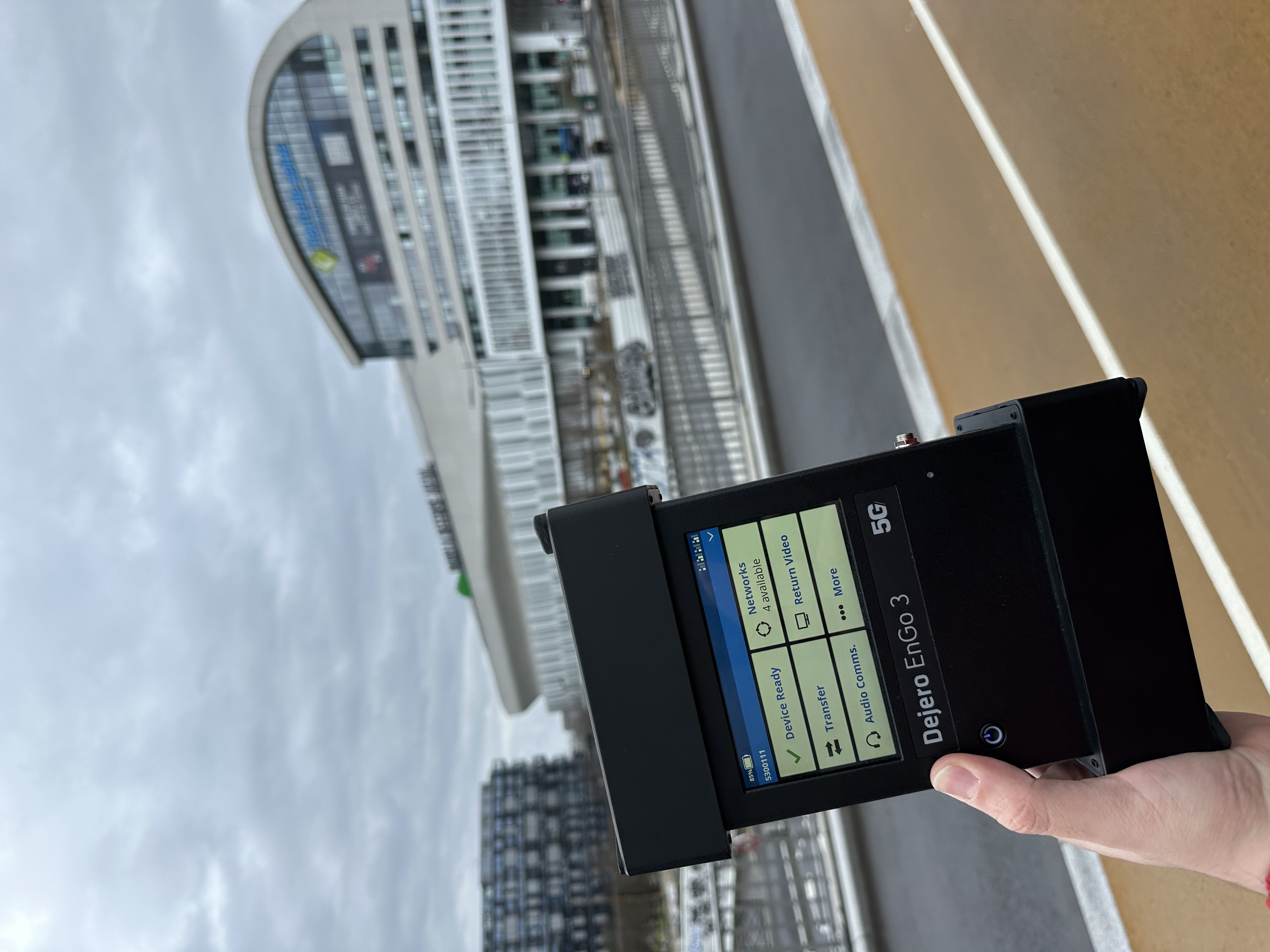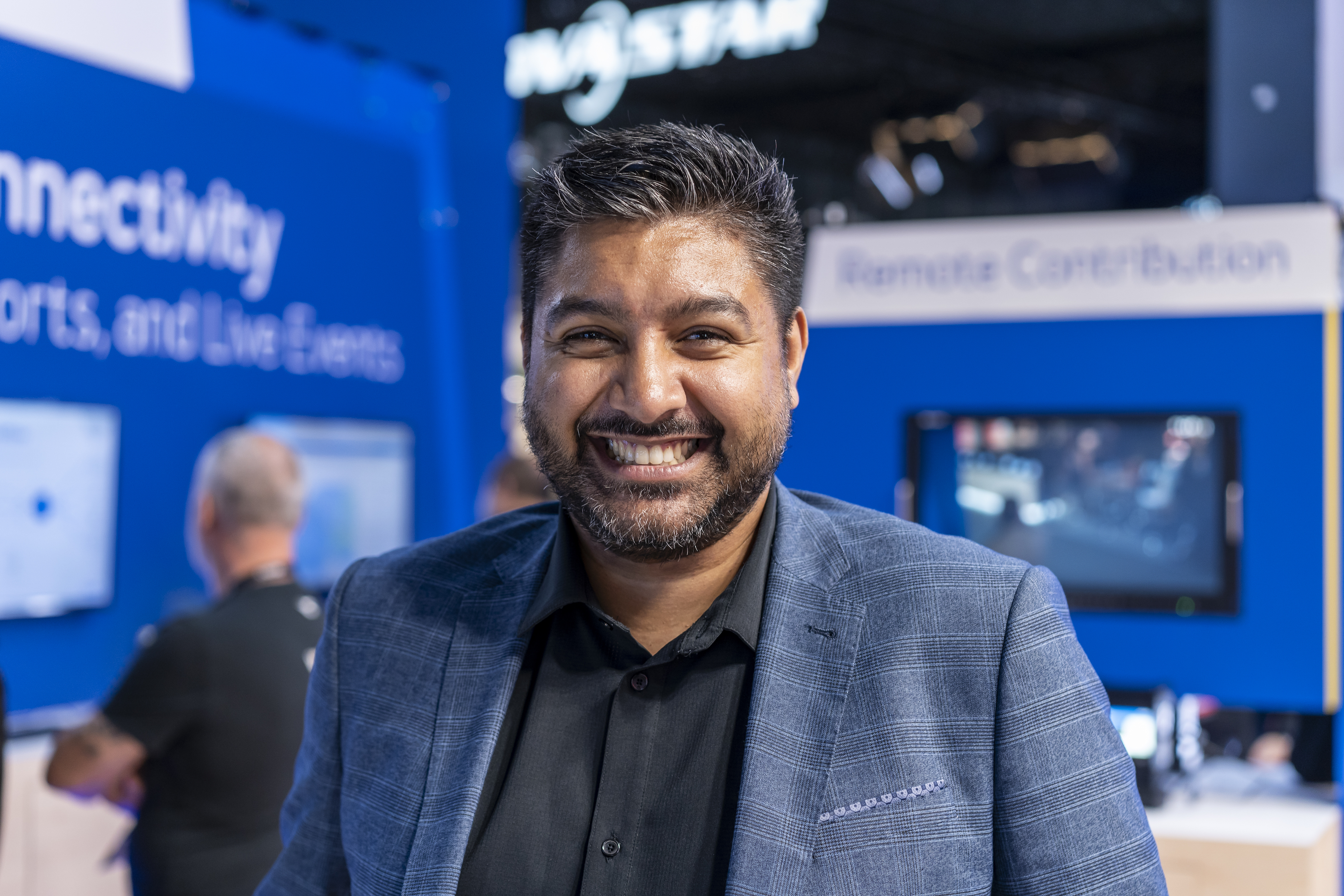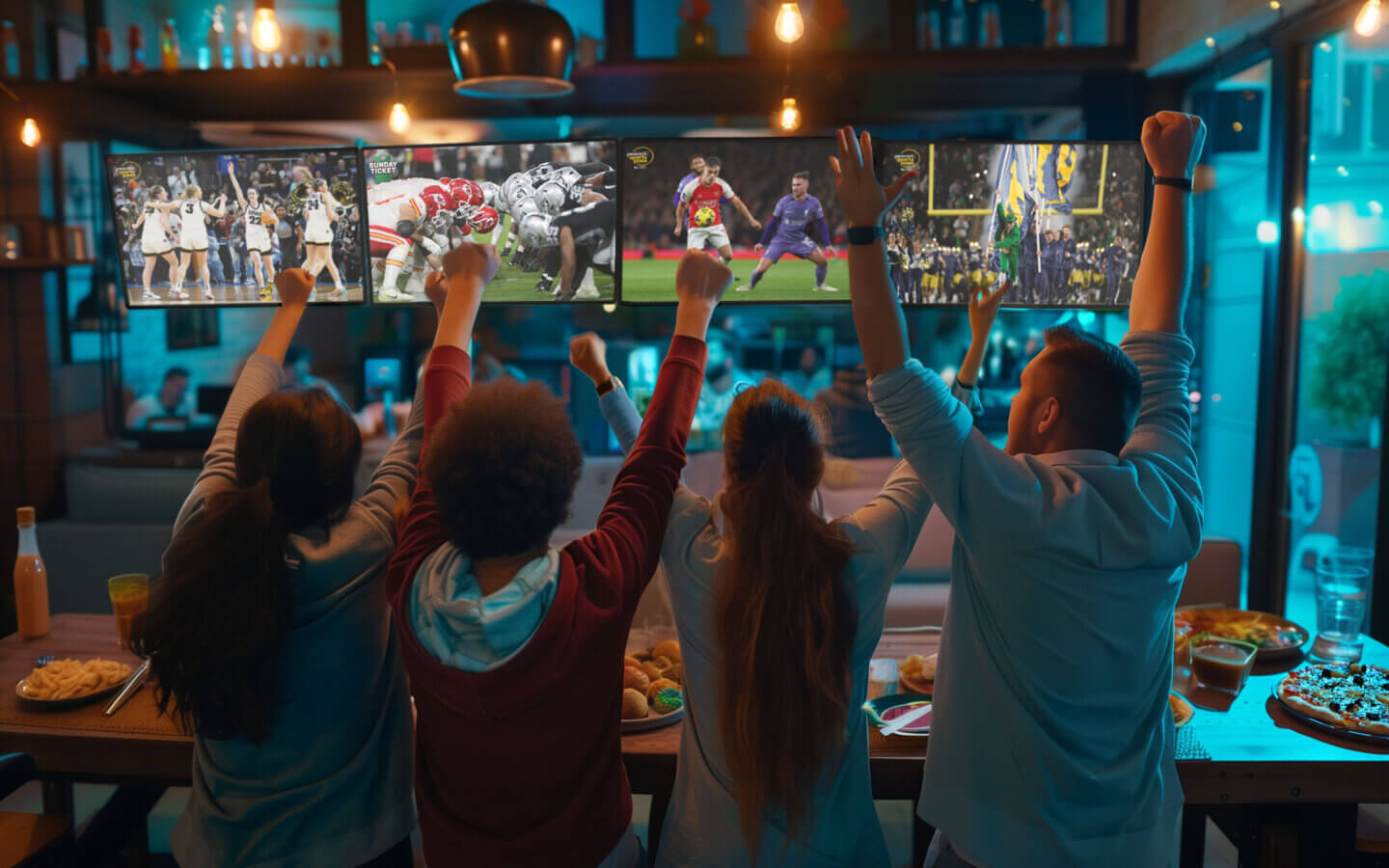Are the Paris Games Ready for 5G?
Navigating what is expected to be a congested cellular network

The professional video industry's #1 source for news, trends and product and tech information. Sign up below.
You are now subscribed
Your newsletter sign-up was successful
You’ve barely had time to catch your breath after Tokyo and recently, the 2023 World Cup in Qatar, but you’re already deep into planning for the upcoming Summer Games.
Around 10,500 athletes representing 206 National Olympic Committee teams will compete in Paris from July to August during the Olympic and Paralympic Games, deeming it the largest event ever organized in France to date.

Competing for Bandwidth
As a national broadcaster, it’s imperative that you’re there—your nation is expecting it. But logistics and connectivity may be challenging—how will you be able to leverage existing networks when they’re highly congested? Is Paris ready for 5G? From fans capturing the Games on social media or calling their friends on the other side of the world to celebrate their nation’s latest medal, the network environment will be highly contested, leaving broadcasters vulnerable.
We’ve never had better or more abundant connectivity, and wireless networks like 5G provide even more ways to access reliable backhaul from remote locations. It’s convenient, it promises low-latency, fast speeds and it’s easily accessible. In some cases, it even delivers.
But not everything is as reliable as your country’s medal winners. And all too often, neither is 5G.
Not all 5G Are the Same
While early adopters of 5G like the UAE and South Korea are achieving median download speeds in excess of 500 Mbps, it is a different story elsewhere. Globally, 5G is still in its infancy and in fragmented regions like Europe, performance is especially inconsistent.
According to the GSM Association, there are more than 80 x 5G operators in Europe, and only a handful are capable of delivering speeds in excess of 200 Mbps. Thanks largely to their dedicated 5G spectrum and a supportive regulatory environment, the Nordic countries of Sweden, Finland, Denmark and Norway, as well as Cyprus, are all capable of download speeds which qualify them as “High Performers” by connectivity specialist Ookla.
The professional video industry's #1 source for news, trends and product and tech information. Sign up below.
But in contrast, the five biggest European economies ─ Germany, the UK, France, Italy and Spain ─ are all struggling with spotty coverage and median downloads speeds as low as 98 Mbps.
And it’s not getting any better.
As more and more smartphones, wearables and IoT devices piggyback on Europe’s 5G infrastructure, the resulting network congestion means that median 5G speeds are actually decreasing every year. A report by the European Court of Auditors estimates that 5G deployment across the EU will cost around €400 billion, and with service providers already struggling to see a return on their existing 5G investment, future development into standalone 5G also looks doubtful.
For anyone who needs reliable, robust and high-bandwidth connectivity, 5G isn’t enough.
For mission critical functions, one connection is never enough which is why Dejero Smart Blending Technology™ leverages multiple connections to deliver more ways for people to access reliable connectivity, wherever they are.
Is Paris Ready for 5G?
In preparation for this summer’s sporting events in Paris, Dejero has already conducted 5G tests in the French capital with our latest EnGo 3 range of 5G mobile video transmitters, using a variety of SIM configurations across seven of the venues, including the South Paris Arena, the Emile Anthonie Stadium and the Stade de France.
Setting the EnGo to 20 Mbps and 2 seconds of latency in fixed latency mode, we performed 5 minutes of streaming for each SIM combination. We found that 5G coverage is performing fairly well in the city core, but LTE is still the better option, especially the further out you go. Factor in crowd congestion and you could be in trouble if relying on a single cellular network carrier.
It’s safe to say that for live broadcasting and streaming at the Summer Games, one connection won’t be enough, which is why many live sports professionals will be relying on Dejero Smart Blending Technology that leverages multiple connections to deliver more ways for them to access reliable connectivity, at whichever venue they find themselves.
This carrier diversity delivers greater resiliency, and Dejero’s next generation 5G mobile video transmitters are already fully compatible with both standalone and non-standalone 5G. Combining 5G into multiple cellular networks, fiber and IP connections, as well as low earth orbiting (LEO) satellites, Dejero Smart Blending Technology creates a virtual 'network of networks' to deliver reliable low-latency connectivity.
We will be working closely with customers on-site in Paris to ensure they can secure the bandwidth required to transmit high quality HD and 4K video the connectivity they need. We give our customers the ability to go out and shoot what they want, where they want it, with the full knowledge that our technical experts are available on location to support their needs from the moment they arrive for set up, through to the closing ceremonies and wrap-up reports.
Diverse Networks in Diverse Environments
With uncertainty over the development of 5G even in advanced economies like Europe, it’s good to have more options when we need them. And we need them more than ever.
We’ve gone from sending video from point A to point B, to having everything connected over data. Dejero brings all this into one environment, combining video transmission with data connectivity to enable everyone from remote broadcast crews to emergency support teams to operate in the same way they would in an internal facility.
We’ve seen those limits consistently pushed; our equipment has been flown in helicopters and in planes; it’s been on the ground in the most inhospitable of locations; it’s been in rivers, floods and fires, and in areas affected by earthquakes. It’s worked with broadcasters in Ukraine warzones and in the Maui wildfires, and it is really rewarding to be able to help broadcasters on the front lines who are using Dejero technology for good.
The landscape is constantly evolving, but in a world where there’s still a huge disparity in 5G connectivity, it’s good to know we don’t have to rely on just that and neither will the broadcasters and OTT platforms reporting from Paris this summer.

Sukh entered the broadcast industry when he began working as a website developer at broadcast reseller company, Broadcast & Production Services (BPS). Here, his drive to explore and implement new technologies led him not only to manage the company's IT infrastructure, but also carve out a career in sales. Sukh joined Dejero as a Technical Account Manager in 2017 and has been promoted multiple times during his 6 years with the connectivity specialist. He now takes care of the company's broadcast customers as Sales Account Manager for the UK, Africa and AOC, as well as managing Dejero customers across EMEA and APAC.
